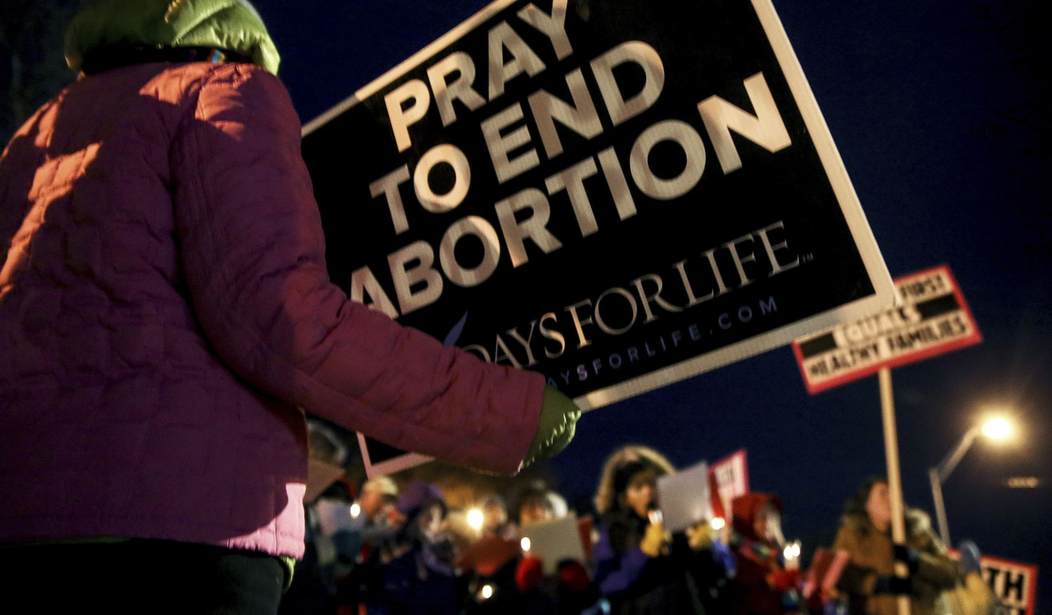Texas Right to Life says S.B. 8, the state law that prohibits abortion after fetal cardiac activity can be detected, has "saved at least 100 lives PER DAY" since it took effect on Sept. 1. Another calculation suggests the number "could be as high as 132."
One reason for the uncertainty is that Texas women who have crossed S.B. 8's legal threshold, which typically happens around six weeks into a pregnancy, can still obtain abortions in other states with less restrictive policies. In that respect, recent experience in Texas offers a preview of what will happen if the Supreme Court decides, contrary to what it has been saying for nearly half a century, that the Constitution does not protect a woman's right to abortion after all.
A case the justices will hear next month, involving Mississippi's ban on elective abortions performed after 15 weeks, presents an opportunity to revisit those precedents. But if the Court repudiates them, the consequences will be much less dramatic than anti-abortion activists hope and abortion advocates fear.
Unlike Mississippi's law, which was blocked before it took effect, the Texas ban has survived multiple challenges, including a Justice Department lawsuit that produced a short-lived preliminary injunction because of its novel enforcement mechanism, which relies on private litigation rather than direct state action. Both laws are plainly inconsistent with Roe v. Wade, the 1973 decision that said states may not ban abortion before "viability," and Planned Parenthood v. Casey, the 1992 ruling that reaffirmed Roe's "central holding."
What would happen if those barriers were removed? The current situation in Texas provides some clues.
Recommended
The abortion clinics that challenged S.B. 8, aka the Texas Heartbeat Act, estimated that it would affect "at least 85%" of women seeking abortions. But that does not mean the law has reduced abortions by 85%, which would amount to something like 127 fewer abortions per day, judging from statewide data for 2020.
Appointments at abortion clinics in nearby states such as Oklahoma, Louisiana, New Mexico, Colorado and Kansas surged after S.B. 8 took effect. While the financial and logistical burdens of traveling to other states probably have deterred some newly prohibited abortions, many are happening anyway.
According to the Center for Reproductive Rights, Oklahoma and Louisiana are among the 22 states that are likely to severely restrict abortion if Roe is overturned. But the CRR classifies New Mexico, Colorado and Kansas as states where elective abortions probably will remain legal, meaning those options would still exist even if Texas legislators, newly liberated by the Supreme Court, banned all abortions.
In 21 states, the CRR says, abortion rights are protected by statute or by judicial interpretations of state constitutions. Seven states lack such explicit legal protection but are not considered likely to enact bans in the absence of Roe.
Assuming that 22 states ban elective abortions, Middlebury College economist Caitlin Knowles Myers calculated this year, the average distance to an abortion clinic for women of childbearing age would increase from 35 to 279 miles. The upshot, she and her colleagues estimate, would be about 14% fewer abortions -- around 87,000 fewer annually, based on the 2018 total reported by the Centers for Disease Control and Prevention.
"A post-Roe United States isn't one in which abortion isn't legal at all," Myers told The New York Times. "It's one in which there's tremendous inequality in abortion access."
Public opinion about abortion regulation varies widely across the states. In most of the country, however, neither voters nor legislators are inclined to support the sort of sweeping restrictions that were common prior to Roe.
Something like a 14% drop in abortions would be a welcome development for those who view the procedure as tantamount to murder. But it is a far cry from the goal that has driven the anti-abortion movement since Roe, and the dystopia envisioned by that decision's most passionate supporters.
























Join the conversation as a VIP Member